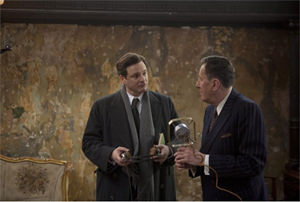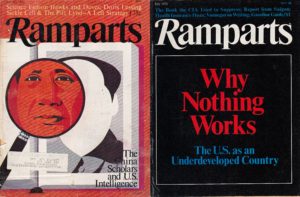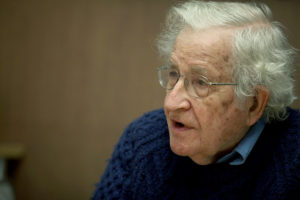Speak, Royalty
All going as imagined, it’s really no more than a minor embarrassment. Prince George (Colin Firth), second in line for the English throne, has a speech impediment, which renders it an agony for him to talk in public.“The King’s Speech” is the best movie I’ve seen so far in 2010.
All going as imagined, it’s really no more than a minor embarrassment. Prince George (Colin Firth), second in line for the English throne, has a speech impediment, which renders it an agony for him to talk in public. But that’s not something he has to do very often. His older brother, Edward (Guy Pearce), may be a perfect twit, but he is quite capable of speaking his vacuous kingly lines, leaving George to putter about his palace, lovingly attending his wife and their two princesses.
Still, it would be nice if this earnest and kindly man could be relieved of his agony, and his wife, perkily played by Helena Bonham Carter, sets about finding him a speech therapist. All of the candidates turn out to be pompous frauds, until, somehow, she finds herself in the down-market digs of Lionel Logue (Geoffrey Rush), an Australian and a failed actor with his own highly eccentric ideas about speech therapy. These include an insistence on addressing George as “Bertie” and having his wife sit on his tummy (“Quite fun,” she judges the experience) while he lies on the floor, intoning nonsense phrases.
So far, it’s not much more than another odd anecdote in the history of a royal line that is not lacking in such incidents, many of them much deadlier than this one. Then, of course, Edward falls in love with that less-than-gay divorcee, Wallis Warfield Simpson, precipitating the infamous constitutional crisis, his abdication of the throne and his subsequent career in irrelevancy (which included, of course, his flirtation with fascism). Now, it would not just be nice if Bertie could conquer his stammer; it is vital that he do so, for he is about to become one of the prime spokesmen for a nation standing on the brink of World War II.
He is also about to seal a deep, odd-couple friendship with Lionel. Bertie is initially presented as rather a phlegmatic sort of fellow in Firth’s finely measured performance. He has a king’s loosely worn dignity, but he has just the right touch of irony when it comes to pomp and circumstance, and eventually he lets us see that he has unsuspected reservoirs of anger and affection as well. Lionel is ever the live wire, fully capable of challenging even the Archbishop of Canterbury (head of the established church) in order to protect the interests of his patient. He’s as cheeky as Bertie is staid, and I think their relationship is the most interesting that we have seen on the screen this year.
I also think that “The King’s Speech” is the best movie I’ve seen so far in 2010. Normally, I avoid such flat-out superlatives—I’ve always thought they are a bad critical practice, and a potentially embarrassing one. But this film, written by David Seidler and directed by Tom Hooper, is an exceptional case. It tiptoes up to the farcical, then, at just the right moments, withdraws to the thoughtful, particularly as regards the issues of class that king and commoner must inevitably address in a country that, under the impress of economic crisis and an onrushing war, was in the process of revising. Who knew that this revision was being quietly encapsulated at the very top level of society?
Yet this is a true story and everything about its subtle screen presentation reassures us of that truthfulness. This is a movie that almost entirely takes place in rather cramped quarters, some of them well furnished, some of them close to squalid. And, as befits a movie that is about the art of learning to speak freely, its true glory is in its well-judged dialogue, which is full of sudden emotional reversals—sometimes angry, sometimes affectionate, but always with a truthful ring. It is the common curse of movies about royals that the temptation to speechify is usually not avoided. But here we have a film about the very act of speech that avoids that pitfall. The truest measure of “The King’s Speech” is that all its performances feel unrehearsed, unaware of the effects the players are having on each other and on us in the audience.
Yet it is quite wonderfully suspenseful. When Bertie must make his most important speech, rallying the nation to fight a desperate war, we are in agony that he succeed. Yes, Lionel is with him, virtually conducting the performance, mouthing his words, giving hand signals. But we understand, as well, that success is going to be a close-run thing. We are informed, at the end of the film, that the speech teacher would be at the king’s side for all of his major addresses thereafter, that he would be a valued member of his entourage until George’s death.
This is a story kept in proportion. It never strums hard on its larger underlying themes. And, God knows, it never deteriorates into one of those awful “triumph-of-the-human-spirit” tales. It stubbornly remains a story of a man with a problem he overcomes thanks to the intervention of a clever, helpful, persistent friend. It is a film that knows its limits—and then transcends them almost casually, but with resonant and powerful effect.
Your support matters…Independent journalism is under threat and overshadowed by heavily funded mainstream media.
You can help level the playing field. Become a member.
Your tax-deductible contribution keeps us digging beneath the headlines to give you thought-provoking, investigative reporting and analysis that unearths what's really happening- without compromise.
Give today to support our courageous, independent journalists.





You need to be a supporter to comment.
There are currently no responses to this article.
Be the first to respond.